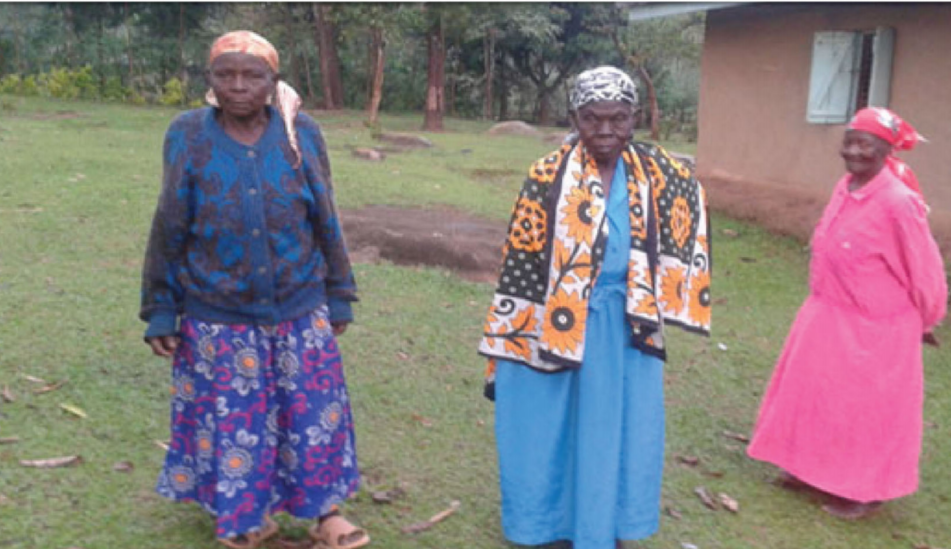STATEMENT ON OBSERVANCE OF THE WORLD ELDER ABUSE AWARENESS DAY
The National Gender and Equality Commission (NGEC) joins Kenya and the rest of the world in observing the 2022 World Elder Abuse Awareness Day (WEAAD). The World Elder Abuse Awareness Day takes place every year on the 15th day of June as designated by the United Nations General Assembly, in its December 2011 resolution 66/127. These celebrations provide communities around the world with an opportunity to promote a better understanding of the abuse and neglect of older persons by raising awareness of the cultural, social, economic, health, and environmental circumstances affecting older persons.
The 2022 WEAAD theme is “Building Strong Support for Elders”. The theme calls on the need to plan and build a society for all and to provide specific and adequate support to older members of society. Globally, the population of the ageing persons is rapidly increasing especially in the developing countries[1] mainly due to improving living conditions. Care and protection of the older members of society are therefore more than ever before a great concern. The COVID-19 pandemic and the sporadic economic recessions, and disruption of peace among other factors have aggravated the situation with reports indicating a rapid deterioration state of the general well-being of older persons.
The Constitution of Kenya, 2010 (COK) under Article 260 defines the older members of society as those who have attained the age of sixty. Although Kenya is largely composed of a youthful population, statistics show that the country is experiencing growth in the proportions of older members of society. The 2019 Kenya Population and Housing Census (KNBS, 2019) show that the population of persons aged 60 and above is 1.76 million. This segment of the population has continued to increase over time for example from 5.4% of the total population in 1969 to 5.8% of the population in 2019. There is also a significant increase in the proportion of older persons living alone or living with minors, as well as those without significant social protection.
To address the plight of older persons, Kenya has over time put in place various legal, policy, programmatic and institutional measures that are in line with the provisions of the International, and Regional Legal Instruments to which Kenya is a party. These include; the Madrid Plan of Action on Ageing (MIPAA), Sustainable Development Goals (SDGs), and the African Charter on Human and Peoples’ Rights on the Rights of older persons in Africa (Protocol on Older Persons), just to mention a few. The Kenya Constitution, 2010, the Vision 2030, the National Social Protection Policy (2011) and the National Policy on Older Persons and Ageing (2014), are some of the vital legal and policy frameworks that Kenya has invested in the last decade. More specifically, in 2017, Kenya launched an innovative social assistance unconditional cash transfer program branded ‘Inua Jamii’ targeting old persons of ages 70 years and above. Government reports have documented the transformation of this program in the lives of vulnerable older persons.
Despite these measures, older persons in Kenya continue to suffer multiple violations of their social, cultural, political and economic rights. Studies indicate that the aged and the ageing persons are often relegated to society. They suffer from a wide range of abuse, neglect, exploitation, denial of opportunities, and lack of recognition. Such vices emerge from the erosion of traditional protection systems, commercialization, care and support, the proliferation of individualism, unsustainable urbanization, poverty, and pandemics, just to mention a few. The net result is that older persons' financial security, personal respect, dignity and value are compromised. Many older persons, especially women, suffer stigmatization, sexual violence, and work for no pay (exploitation).
Informal systems of social protection in the form of cash and kind from both extended family and community sources have also declined over time. In addition, the effectiveness of community support systems for older persons is consistently eroded by devastating HIV/AIDS, COVID-19 pandemic, and climatic shocks. The high unemployment rates among youth have led to a reducing number of younger people able to support their ageing parents and kinsfolk. Further, Kenya like many other developing countries has a low coverage of formal systems of social protection directed to vulnerable older persons.
To address some of the complexities involved in formulating stable and strong support systems for the older persons, Kenya in February 2022 ratified the Protocol to the African Charter on Human and Peoples’ Rights on the Rights of Older Persons in Africa. The Commission lauds the Government for this outstanding decision and its continued commitment to the rights and welfare of Kenya’s ageing population. The provisions of the Protocol will accelerate the review and formulation of relevant national legal instruments, and the design of the national and county-level programs for the promotion and protection of the rights of older persons.
As we observe this day, the Commission is cognizant of the fact that older members make a substantial contribution to national development. They are a key source of cohesion, peace, and national pride, and are conservators of our culture, languages, and beliefs. We call on all stakeholders to work collectively towards the development of resilient community structures that promote the rights of older persons, and design programs that deliberately promote the involvement of older persons in community development. We must do everything possible including during this season of elections, to preserve the dignity of our older persons.
The National Gender and Equality Commission is committed to promoting freedom from discrimination and inclusion of all older members of society.
Together we can “Build Strong Support systems for our Elders”
Thank You.
Dr. Joyce M. Mutinda PhD, EBS.
Chairperson
[1] United Nations. 2020. World Population Ageing, Highlights.


Comments